Today Current Affairs: 15th March 2022 for UPSC IAS exams, State PSC exams, SSC CGL, State SSC, RRB, Railways, Banking Exam & IBPS, etc
Table of Contents
What Are Nutraceuticals Products?

Nutraceuticals is a broad umbrella term that is used to describe any product derived from food sources with extra health benefits in addition to the basic nutritional value found in foods.
- They can be considered non-specific biological therapies used to promote general well-being, control symptoms and prevent malignant processes.
- The term “nutraceutical” combines two words – “nutrient” (a nourishing food component) and “pharmaceutical” (a medical drug).
- Aimed at providing accessible, standardised and affordable generic medicines, the Pradhan Mantri Bhartiya Janaushadhi Pariyojana (PMBJP) Kendras have added nutraceuticals products, including protein powder and bar, malt-based food supplements and immunity bar for its customers.
- CJI lays foundation for International Arbitration Centre in Hyderabad:
- Proposed by the International Arbitration and Mediation Centre Trust.
- IAMC-Hyderabad is India’s first arbitration centre for alternate dispute resolution.
- Arbitration is an alternative dispute resolution (ADR) procedure in which a dispute is submitted, by agreement of the parties, to one or more arbitrators who make a binding decision on the dispute.
- In choosing arbitration, the parties opt for a private dispute resolution procedure instead of going to court.
Ban On Mechanised Fishing Boats In The Mangalajodi Area Of The Chilika Lake:
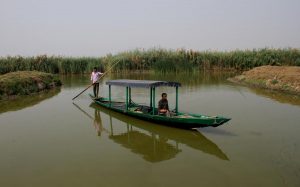
The Odisha government has proposed to ban movement of mechanised fishing boats in the Mangalajodi area of the Chilika lake, an important haunt of migratory birds, to provide the winged guests an undisturbed ecosystem for six months every year.
- Mangalajodi is recognised as globally important for the conservation of birds. Migratory birds arrive there for roosting.
- Chilika is 64 kilometres long in the north-south direction and 13.5 km wide in the east-west direction.
- The sea connected with the lake near Satapada through a shallow and narrow channel.
- The connecting channel was obstructed by shoals, sand spits and sandbars, thus restricting the outflow of water and also checking the tidal flow into the lake.
- Chilika is Asia’s largest and world’s second largest lagoon.
- It is the largest wintering ground for migratory birds on the Indian sub-continent and is home to a number of threatened species of plants and animals.
- In 1981, Chilika Lake was designated the first Indian wetland of international importance under the Ramsar Convention.
- Major attraction at Chilika is Irrawaddy dolphins which are often spotted off Satpada Island.
- The large Nalabana Island (Forest of Reeds) covering about 16 sq km in the lagoon area was declared a bird sanctuary in 1987.
- Kalijai Temple is located on an island in the Chilika Lake.
India Canada Have Agreed To Re-Launch The CEPA:

India – Canada have agreed to re-launch the Comprehensive Economic Partnership Agreement (CEPA) negotiations to unlock full potential of bilateral trade.
- They are also considering an Interim Agreement or Early Progress Trade Agreement (EPTA) that could bring early commercial gains to both the countries.
- The trade agreement would help in expanding bilateral trade in goods and services through unlocking the potential across sectors.
India-Canada Comprehensive Economic Partnership Agreement (CEPA):
- In September 2008, the India-Canada CEO Round Table recommended that India and Canada would benefit enormously from CEPA by elimination of tariffs on a substantial majority of the bilateral trade.
- CEPA would cover trade in goods, trade in services, rules of origin, sanitary and phytosanitary measures, technical barriers to trade and other areas of economic cooperation.
Death Of Labourers Hired For Manual Scavenging:
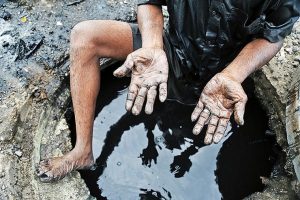
Three labourers in Mumbai, allegedly hired for manual scavenging, died after inhaling toxic fumes in a septic tank.
- Even though manual scavenging is banned in India, the practice is still prevalent in many parts of the country.
- Manual scavenging is the practice of removing human excreta by hand from sewers or septic tanks.
- India banned the practice under the Prohibition of Employment as Manual Scavengers and their Rehabilitation Act, 2013 (PEMSR).
- The Act recognizes manual scavenging as a “dehumanizing practice,” and cites a need to “correct the historical injustice and indignity suffered by the manual scavengers.”
- Article 21 of the Constitution guarantees ‘Right to Life’ and that also with dignity.
- This right is available to both citizens and non-citizens.
- The ban Manual Scavenging should, therefore, should be implemented in letter and spirit.
Report On Unified District Information System For Education Plus 2020-21:
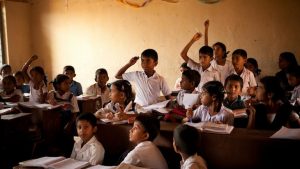
The Ministry of Education has released a detailed report on Unified District Information System for Education Plus (UDISE+) 2020-21 on school education of India.
- The UDISE+ system of online data collection from the schools was developed by Department of School Education & Literacy in the year 2018-19.
- It was aimed to overcome the issues related to erstwhile practice of manual data filling in paper format and subsequent feeding on computer at the block or district level in the UDISE data collection system since 2012-13.
- In UDISE+ system, improvements have been made particularly in the areas related to data capture, data mapping and data verification.
Highlights of the report:
- In 2020-21 total students enrolled in school education from primary to higher secondary stood at 25.38 crore.
- There is an increase of 28.32 lakh enrolments as compared to the 25.10 crore enrolment in 2019-20.
- Gross Enrolment Ratio (GER) which measure the general level of participation has improved in 2020-21 at all levels of school education compared to 2019-20.
- Level wise GER in 2020-21 as compared to 2019-20 are: 92.2% from 89.7% in upper primary, 99.1 % from 97.8% in elementary, 79.8% from 77.9% in secondary and 53.8% from 51.4% in higher secondary respectively.
- 96.96 lakh teachers are engaged in school education during 2020-21.
- This is higher by about 8800 in comparison with number of teachers in school education in 2019-20.
- In 2020-21 the Pupil Teacher Ratio (PTR) stood at 26 for primary, 19 for upper primary, 18 for secondary and 26 for higher secondary, showing an improvement since 2018-19.
- The PTR for primary, upper primary, secondary and higher secondary was 28, 20, 21, and 30 respectively during 2018-19.
- In 2020-21 over 12.2 crore girls are enrolled in primary to higher secondary showing an increase of 11.8 lakh girls compared to the enrolment of girls in 2019-20.
- Schools with functional electricity have made impressive progress during 2020-21 with net addition of 57,799 schools provided electricity.
- Now 84% of the total schools have functional electricity facility in comparison with 73.85% in 2018-19 showing remarkable improvement of 10.15% during the period.
- Percentage of the schools with functional drinking water has increased to 95.2 % in 2020-21 from 93.7 % in 2019-20.
- Percentage of the school with functional girl’s toilet facility has increased to 93.91 % in 2020-21 in comparison with 93.2 % in 2019-20 by adding the facility in additional 11,933 schools during the year.
- Number of schools having functional computers increased to 6 lakh in 2020-21 from 5.5 lakh in 2019-20 showing an increasing of 3 %. Now, 40% of the schools have functional computers.
- Number of schools having internet facility increased to 3.7 lakh in 2020-21 from 3.36 lakh in 2019-20 with an increase of 2.6%.
- During 2020-21, 39.7 lakh students of government aided, private school students shifted to Government schools.
What Is GenOMICC Project?
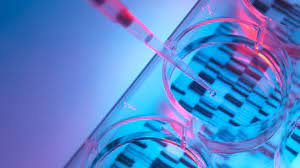
Scientists in the United Kingdom as part of a research project, GenOMICC (Genetics of Mortality in Critical Care), have identified 16 new genetic variants that make a person more susceptible to a severe COVID-19 infection.
- The GenOMICC— reportedly the largest of its kind — is a research study that brings together clinicians and scientists from around the world to find the genetic factors that lead to critical illnesses.
- The scientists involved compare the DNA of critically-ill patients with members of the general population.
- However, ferreting out such differences requires a large number of people and comparing their genetic structures at multiple levels of resolution.
- Since 2015, the GenOMICC has been studying emerging infections such as SARS (severe acute respiratory syndrome), MERS (Middle East respiratory syndrome), flu, sepsis, and other forms of critical illness.
37th Foundation Of National Crime Records Bureau:
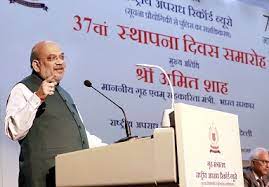
The 37th Foundation Day of National Crime Records Bureau (NCRB) was celebrated (11th March 1986) .
- NCRB, headquartered in New Delhi, was set-up in 1986 under the Ministry of Home Affairs to function as a repository of information on crime and criminals so as to assist the investigators in linking crime to the perpetrators.
- It was set up based on the recommendations of the National Police Commission (1977-1981) and the MHA’s Task Force (1985).
- The Bureau has been entrusted to maintain National Database of Sexual Offenders (NDSO) and share it with the States/UTs on regular basis.
- NCRB has also been designated as the Central Nodal Agency to manage technical and operational functions of the ‘Online Cyber-Crime Reporting Portal’ through which any citizen can lodge a complaint or upload a video clip as an evidence of crime related to child pornography, rape/gang rape.
- The responsibility of implementation of the Inter-operable Criminal Justice System (ICJS) has also been given to the NCRB.
- ICJS is a national platform for enabling integration of the main IT system used for delivery of Criminal Justice in the country.
- It seeks to integrate the five pillars of the system viz Police (through Crime and Criminal Tracking and Network Systems), e-Forensics for Forensic Labs, e-Courts for Courts, e-Prosecution for Public Prosecutors and e-Prisons for Prisons.
- The Government of India has set a target of the second phase of ICJS (Inter-operable Criminal Justice System) by 2026 with an expenditure of about Rs. 3,500 crore.
What Is Blockchain Gaming?
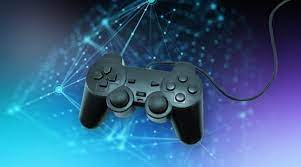
The vast scope and potential of blockchain technology has attracted the gaming industry over the past few years. In India too, gaming industries are exploring this option.
- Blockchain is a decentralised database that stores information. It relies on technology that allows for the storage of identical copies of this information on multiple computers in a network.
Blockchain Gaming:
- Blockchain games are online video games that are developed integrating blockchain technology into them.
- It includes elements that use cryptography-based blockchain technologies like Cryptocurrency or Non-Fungible Tokens (NFTs).
- These elements are used by players to buy, sell, or trade with other players, with the game publisher taking a fee from each transaction as a form of monetization.
- Example of Blockchain Game: In 2017, Dapper Labs’ had developed the first ever blockchain game called CyrptoKitties.
- In the game, people can virtually experience the joy of adopting and breeding a cat (CryptoKittie), without taking up the responsibility of bringing one home.
- Each CryptoKittie is a Non-Fungible Token (“NFT”).
- NFTs represent in-game virtual assets that can be owned by players, such as maps, armor or land.
- These NFTs act as asset tags, identifying ownership of the in-game assets, and are stored on the blockchain.
- Being on the blockchain allows the player to have a secure record of ownership of the in-game assets and also gives the assets the ability to outlive the game itself.
- Based on the manner in which the games are designed, it also allows for the in-game assets to be transferred from one game to another.
- It also creates transparency, since ownership records can independently be verified by any third party as well.
- In doing so, it makes in-game assets marketable and creates a decentralized market, where they can be bought and sold by people.
Bahini Scheme By Sikkim Government:

The Sikkim government is set to announce a scheme (Bahini) to install vending machines to provide free sanitary pads.
- This is the first time that a state government has taken a decision to cover all girls studying in Classes 9-12.
- It aims at providing “100% access to free and safe sanitary pads to secondary and senior secondary school going girls”.
- It is also aimed to curb dropout of girls from schools and raise awareness about menstrual hygiene.
- The scheme is based on an experiment the state government initiated in 2018, in collaboration with Sulabh International, where vending machines were installed in some schools.
- Sulabh International is an India-based social service organization that works to promote human rights, environmental sanitation, non-conventional sources of energy, waste management and social reforms through education.
- According to the National Family Health Survey (NFHS-4) 2015-16, India has over 355 million menstruating women.
- However, only 36% of women were reported as using sanitary napkins, locally or commercially produced.
- The percentage of women using menstrual products did improve significantly across the country, especially in Daman and Diu and Dadra and Nagar Haveli, West Bengal and Bihar, as estimated in the first phase of the recently released NFHS-5.
- Despite this, menstrual health remains a low-priority issue in India marred with taboos, shame, misinformation, and poor access to sanitation facilities and menstrual products.
New Guidelines On Abortion Care : WHO
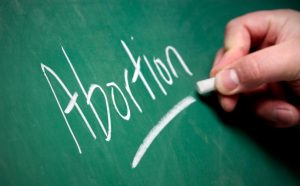
The World Health Organization (WHO) presented new guidelines on abortion care. These, it claimed, would prevent more than 25 million unsafe abortions annually.
- The new guidelines include recommendations on many simple interventions at the primary care level that improve the quality of abortion care provided to women and girls.
- The new guidelines will support interested countries to implement and strengthen national policies and programmes related to contraception, family planning and abortion services, helping them to provide the highest standard of care for women and girls.
Global Status of Abortions:
- Globally, between 13,865 and 38,940 lives are lost yearly due to the failure to provide safe abortion.
Developing countries bear the burden of 97% of unsafe abortions. - The proportion of abortions that are unsafe is also significantly higher in countries with highly restrictive abortion laws than in those with less restrictive laws.
- Over half (53.8%) of all unsafe abortions occur in Asia, the majority of those in south and central Asia. A quarter (24.8%) occur in Africa, mainly in eastern and western Africa and a fifth (19.5%) in Latin America and the Caribbean.
- Abortion rates were highest in low-income countries with the most legal restrictions to abortion care.
- There was also an increase of 12% in the number of abortions in countries with legal restrictions on the procedure, while it declined slightly in countries where abortion is broadly legal.
New Guidelines by the WHO:
- These include task sharing by a wider range of health workers; ensuring access to medical abortion pills, which mean more women can obtain safe abortion services and making sure that accurate information on care is available to all those who need it.
- It also includes the recommendations for the use of telemedicine, which helped support access to abortion and family planning services during the Covid-19 pandemic.
- It also recommend removing medically unnecessary political barriers to safe abortion, such as criminalisation, mandatory waiting periods before receiving a requested abortion, third-party authorisation for abortion, restrictions on which health workers can provide abortion services.
- Such barriers can lead to critical delays in accessing treatment and put women and girls at greater risk of unsafe abortion, stigma and health complications, while increasing barriers to education and their ability to work.
- Restricting access to abortions does not reduce the number of abortions that take place. In fact, restrictions are more likely to push women and girls into unsafe practices.
- A person’s environment plays a crucial role in shaping their access to care and influencing their health outcomes.
- An enabling environment is the foundation of quality comprehensive abortion care.
- The three cornerstones of an enabling environment for abortion care are:
- Respect for human rights including a supportive framework of law and policy.
- Availability and accessibility of information.
- A supportive, universally accessible, affordable and well functioning health system.
US To Revoke Russia’s Permanent Normal Trade Relations:

US and other members of the Group of Seven (G7) will revoke Russia’s “Permanent Normal Trade Relations (Pntr)” status to punish Russia for war over Ukraine.
- The move would pave the way for the US to impose tariffs on a wide range of Russian goods, heightening pressure on an economy on the brink of deep recession.
- A recession is a period of declining economic performance across an entire economy that lasts for several months.
- The G7 is the group of developed western countries (UK, Canada, France, Germany, Italy, Japan and the US) established in 1975.
- The status of Permanent Normal Trade Relations (PNTR) is a legal designation in the United States for free trade with a foreign nation.
- In the United States, the name was changed from Most Favored Nation (MFN) to PNTR in 1998.
MFN Status:
- World Trade Organization (WTO) members commit to treating other members equally so they can all benefit from each other’s lowest tariffs, highest import quotas and fewest trade barriers for goods and services.
- This principle of non-discrimination is known as Most Favoured Nation (MFN) treatment.
- This is one of the measures which ensures trade without discrimination. Another one is ‘National Treatment ‘.
- Article 1 of the General Agreement on Tariffs and Trade (GATT), 1994, requires every WTO member country to accord MFN status to all other member countries.
- There are some exceptions, such as when members strike bilateral trade agreements or when members offer developing countries special access to their markets.
- For countries outside the WTO, such as Iran, North Korea, Syria or Belarus, WTO members can impose whatever trade measures they wish without flouting global trading rules.
- In international trade, MFN status (or treatment) is awarded by one nation to another.
- For example, India accorded MFN status to all WTO member countries, including Pakistan, from the date of entry into force of the so called Marrakesh Agreement, establishing the WTO.
- A nation with MFN status will not be discriminated against and will not be treated worse than any other nation with MFN status.
- Grant someone a special favour (such as a lower customs duty rate for one of their products) and you have to do the same for all other WTO members.
- There is no formal procedure for suspending MFN treatment and it is not clear whether members are obliged to inform the WTO if they do so.
- India suspended Pakistan’s MFN status in 2019 after a suicide attack by a Pakistan-based Islamist group killed 40 police.
- Pakistan never applied MFN status to India.




